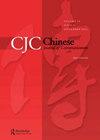When scientific literacy meets nationalism: Exploring the underlying factors in the Chinese public’s belief in COVID-19 conspiracy theories
IF 1.9
2区 文学
Q2 COMMUNICATION
引用次数: 15
Abstract
Abstract This study investigated public beliefs in coronavirus 2019 (COVID-19) conspiracy theories in China. It also examined the dynamic mechanisms underlying these beliefs. On the basis of a national sample (N = 1,000), three types of COVID-19 conspiracy theories were identified. Type I relates to the pandemic’s foreign origin. Type II is defined as “China as culprit” conspiracy theories, and Type III refers to the virus as being primarily a Western creation. The results revealed that nationalism and scientific literacy were significantly associated with conspiracy beliefs. There was a relationship between scientific literacy and a weaker belief in almost all COVID-19 conspiracy theories. Nationalism was associated with a stronger belief in theories favorable to China and a weaker belief in “China as culprit” theories. Media trust and attitudes toward science were also associated with conspiracy beliefs. However, the association depended on the nature of the media outlets and conspiracy theories. These findings are indicative of the multifaceted nature of conspiracy beliefs in China and the robust political dimensions of the relationship between such beliefs and science or media factors.当科学素养遇到民族主义:探索中国公众对COVID-19阴谋论信仰的潜在因素
摘要本研究调查了中国公众对2019冠状病毒病(COVID-19)阴谋论的看法。它还研究了这些信念背后的动力机制。在全国样本(N = 1000)的基础上,确定了三种类型的COVID-19阴谋论。I型与大流行的外来来源有关。第二种类型被定义为“中国是罪魁祸首”的阴谋论,第三种类型指的是病毒主要是西方创造的。结果显示,民族主义和科学素养与阴谋信仰显著相关。科学素养与对几乎所有COVID-19阴谋论的信任度较低之间存在关联。民族主义与对中国有利理论的强烈信念和对“中国是罪魁祸首”理论的较弱信念有关。媒体信任和对科学的态度也与阴谋论有关。然而,这种联系取决于媒体的性质和阴谋论。这些发现表明了中国阴谋信仰的多面性,以及这种信仰与科学或媒体因素之间关系的强大政治维度。
本文章由计算机程序翻译,如有差异,请以英文原文为准。
求助全文
约1分钟内获得全文
求助全文

 求助内容:
求助内容: 应助结果提醒方式:
应助结果提醒方式:


